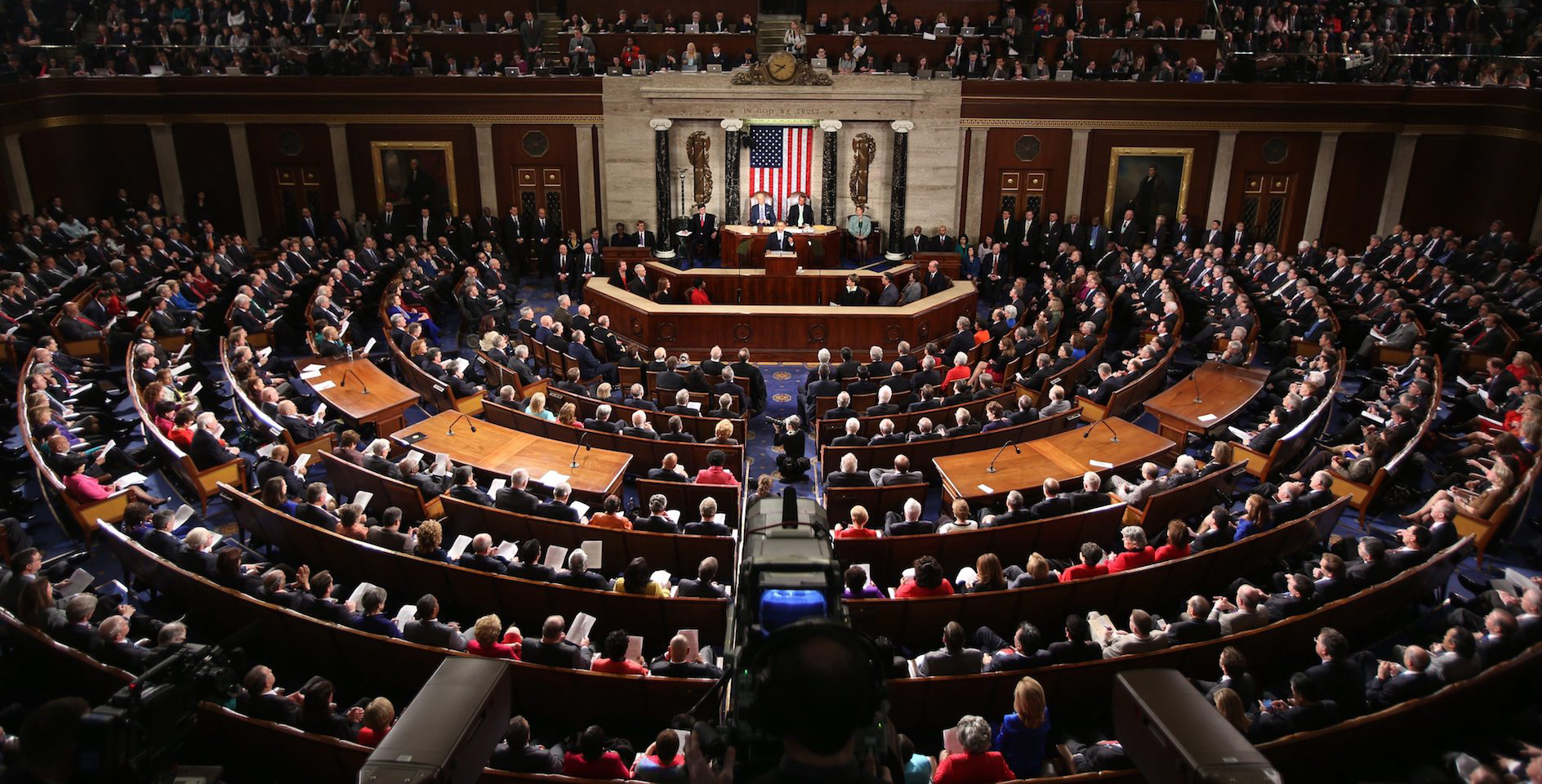 WASHINGTON (BP) — The Obama administration's acknowledgment that its stance would require businesses to underwrite abortions without the right to a legal challenge may have been a particularly telling moment in a March 25 U.S. Supreme Court case that likely will be a landmark in religious liberty.
WASHINGTON (BP) — The Obama administration's acknowledgment that its stance would require businesses to underwrite abortions without the right to a legal challenge may have been a particularly telling moment in a March 25 U.S. Supreme Court case that likely will be a landmark in religious liberty.
It seemed that way to some who oppose the government's position, and they expressed an opinion that it seemed that way to some of the justices.
The Supreme Court heard 90 minutes of oral arguments regarding the federal government's abortion/contraception mandate, which requires employers to provide abortion-causing drugs and devices for their workers. Two family owned businesses — nationwide retail chain Hobby Lobby and Pennsylvania-based Conestoga Wood Specialties — had their opportunity to present their contention that the federal rule violates free exercise of religion rights and a 1993 law protecting religious liberty.
Associate Justice Anthony Kennedy asked Solicitor General Donald Verrilli, the Obama administration's advocate, if he thought a for-profit corporation “could be forced in principle to pay for abortions.”
At first, Verrilli seemed to deny it would, saying, “[T]he law now is to the contrary.”
Kennedy countered: “But your reasoning would permit that.”
Verrilli eventually said, “Well, I think that if it were for a for-profit corporation and if such a law like that were enacted, then you're right, under our theory … the for-profit corporation wouldn't have an ability to sue.”
Lawyers for both plaintiffs cited the exchange in their assessments of oral arguments.
“The justices were extremely concerned about the idea that just because a family tries to earn a living in business they abandon their constitutional and statutory freedoms,” said Matt Bowman, senior legal counsel for Alliance Defending Freedom (ADF). “I found it interesting that the justices also were very explicitly concerned about the notion that the government's position is so extreme that if they force families and businesses to provide abortions of any kind, even presumably surgical or late-term abortions, those families would not even be able to have a day in court to object.
“[T]hose are extreme positions on the part of the government,” he told Baptist Press.
“Ultimately, what the government is doing here is forcing people to buy abortion products for other people,” said Bowman, whose organization has represented Conestoga Wood. “And that unprecedented mandate — given at the same time that the government is exempting a hundred million people from it for secular, political reasons — can't be squared with the deference that we give in our country to religious freedom itself.”
Mark Rienzi, senior counsel for the Becket Fund for Religious Liberty, which has represented Hobby Lobby, said, “I think the court had a lot of very hard questions for the government. The government essentially admitted the theory that they're offering in this case would support an abortion mandate.”
After Verrilli said there is no current law requiring for-profits “to provide abortions,” Chief Justice John Roberts cited the current case.
“Isn't that what we are talking about in terms of their religious beliefs? One of the religious beliefs is that they have to pay for these four methods of contraception that they believe provide abortions,” Roberts told Verrilli. “I thought that's what we had before us.”
Verrilli admitted it was the belief of the business owners but said federal and state law did not support a belief that the methods constitute abortion.
The regulation issued by the U.S. Department of Health and Human Services to implement the 2010 health care law requires coverage of federally approved contraceptives, including the IUD intrauterine device and such drugs as the morning-after pill Plan B. Both the IUD and morning-after pill possess post-fertilization mechanisms that can cause abortions by preventing implantation of tiny embryos. The rule also covers “ella” which — in a fashion similar to the abortion drug RU 486 — can act even after implantation to end the life of the child.
While some conscientious objectors to the HHS rule oppose underwriting all contraceptives, Hobby Lobby and Conestoga Wood protest paying only for abortion-causing drugs.
Roberts, Kennedy and associate justices Samuel Alito, Antonin Scalia and Stephen Breyer seemed suspicious of Verrilli's arguments, but justices Elena Kagan, Sonia Sotomayor and Ruth Bader Ginsburg repeatedly challenged Paul Clement, who represented the businesses.
Kagan told Clement, solicitor general under President George W. Bush, the corporations have another choice — they could refuse to provide health insurance and pay the $2,000 tax per employee.
“Well, just to put this in concrete terms, for Hobby Lobby, for example, the choice is between paying … a $475 million per year penalty [for refusing to abide by the mandate] and paying a $26 million per year [tax],” Clement said. “You have a government law that specifically says you must do something that violates your religion — and it's enforced with a penalty, and with all due respect I think $2,000 per employee is a penalty.”
Kagan disagreed, saying, it is “not saying you must do something that violates your religion. It's giving you a choice. You can do this thing or if this thing violates your religion you can do another thing.”
After the arguments, Hobby Lobby co-founder Barbara Green said in a written statement her family had built the business based on the Greens' Christian faith and wants “to continue to live out our faith in the way we do business.”
“We believe that no American should lose their religious freedom just because they open a family business,” she said, adding, “[W]e prayerfully await the justices' decision.”
Anthony Hahn, chief executive officer of Conestoga Wood, said his family never expected to see a time when the government “would force us to be complicit in the potential destruction of human life.”
“We didn't choose this fight,” Hahn said in a written statement after the arguments. The Hahns, Greens and others, he said, “would have been happy to just continue providing good jobs and generous healthcare benefits. But the government forced our hand. We hope and pray that the Supreme Court will uphold the religious freedom of all Americans who seek to glorify God even as they go about making a living.”
Ilyse Hogue, president of NARAL Pro-choice America and a leading supporter of the HHS mandate, told reporters outside afterward, “We will not have our rights extinguished. Our bodies are not our bosses' business.”
The plaintiffs' lawyers expressed encouragement after the arguments.
“I won't make guesses, but it felt like a good day,” Rienzi said outside the court. “It felt like they asked really good questions, and we're happy with it.”
Bowman added, “I'm hopeful. I'm a Christian, and I'm hopeful.”
Planned Parenthood Federation of America President Cecile Richards expressed optimism as an advocate for the mandate.
“It was a wonderful day I think for women, and I really believe that this court understood that women have the right to make their own decisions about their health care and their birth control, and it's not their bosses' decision,” Roberts told reporters.
Supporters of Hobby Lobby and Conestoga Wood have said religious free exercise for Americans is in the balance as the Supreme Court ponders its decision, which is expected to be issued before its term ends in late June or early July.
Russell D. Moore, president of the Southern Baptist Ethics & Religious Liberty Commission, has described the case as “the most important religious liberty case in a generation.”
The decision “will set the tone for the next hundred years of church/state jurisprudence in this country,” he said. “If the federal government can force organizations and businesses to pave over their own consciences, to choose between being believers and being citizens, what will stop the government from imposing its will on anyone's conscience next?”
The justices heard arguments about the mandate after more than two and a half years of protests by pro-life and religious freedom advocates. Objections to the regulation failed to produce either a withdrawal from HHS or adequate conscience protections requested by religious liberty proponents.
HHS provided an exemption to the rule for churches and their auxiliaries. The administration also offered an accommodation for non-church-related religious organizations, but critics called it inadequate because it still forces such groups to provide access to the drugs through third parties.
More than 300 parties, including non-profits and for-profit corporations, have combined to file 94 lawsuits against HHS, according to the Becket Fund. The consolidated case the justices heard March 25 only involves for-profit businesses. The non-profit cases have yet to reach the high court.
The case arrived at the Supreme Court after divided opinions at the appellate level. The Third Circuit Court of Appeals in Philadelphia ruled against Conestoga Wood, saying for-profit, secular organizations “cannot engage in religious exercise.” In ruling for Hobby Lobby, however, the 10th Circuit Court in Denver rejected the Obama administration's argument that protections under the 1993 Religious Freedom Restoration Act do not extend to for-profit companies. It ruled corporations “can be 'persons' exercising religion for purposes” of the RFRA, which requires the government to have a compelling interest and to use the least narrow means to burden a person's religious exercise.
The ERLC signed onto a friend-of-the-court brief filed by the Christian Legal Society in support of Hobby Lobby and Conestoga Wood. Also among the 59 briefs supporting Hobby Lobby and/or Conestoga Wood, according to the Becket Fund, was one signed onto by Southeastern Baptist Theological Seminary; its president, Daniel Akin, and Rick Warren, pastor of Saddleback Church, a mega Southern Baptist congregation in Lake Forest, Calif.
The Green family has said it will not comply with the mandate if it loses in court. The arts and crafts retail chain of more than 600 stores could face fines totaling $1.3 million a day. The Christian bookstore chain Mardel, also owned by members of the Green family, is part of the suit as well. Both are based in Oklahoma City.
The Hahn family has been living under the mandate since its group health plan was renewed in January 2013. Refusal to abide by the mandate could cost the family an estimated $95,000 a day. Conestoga Wood is a wholesale manufacturer of kitchen cabinet parts.
Original story posted here.










